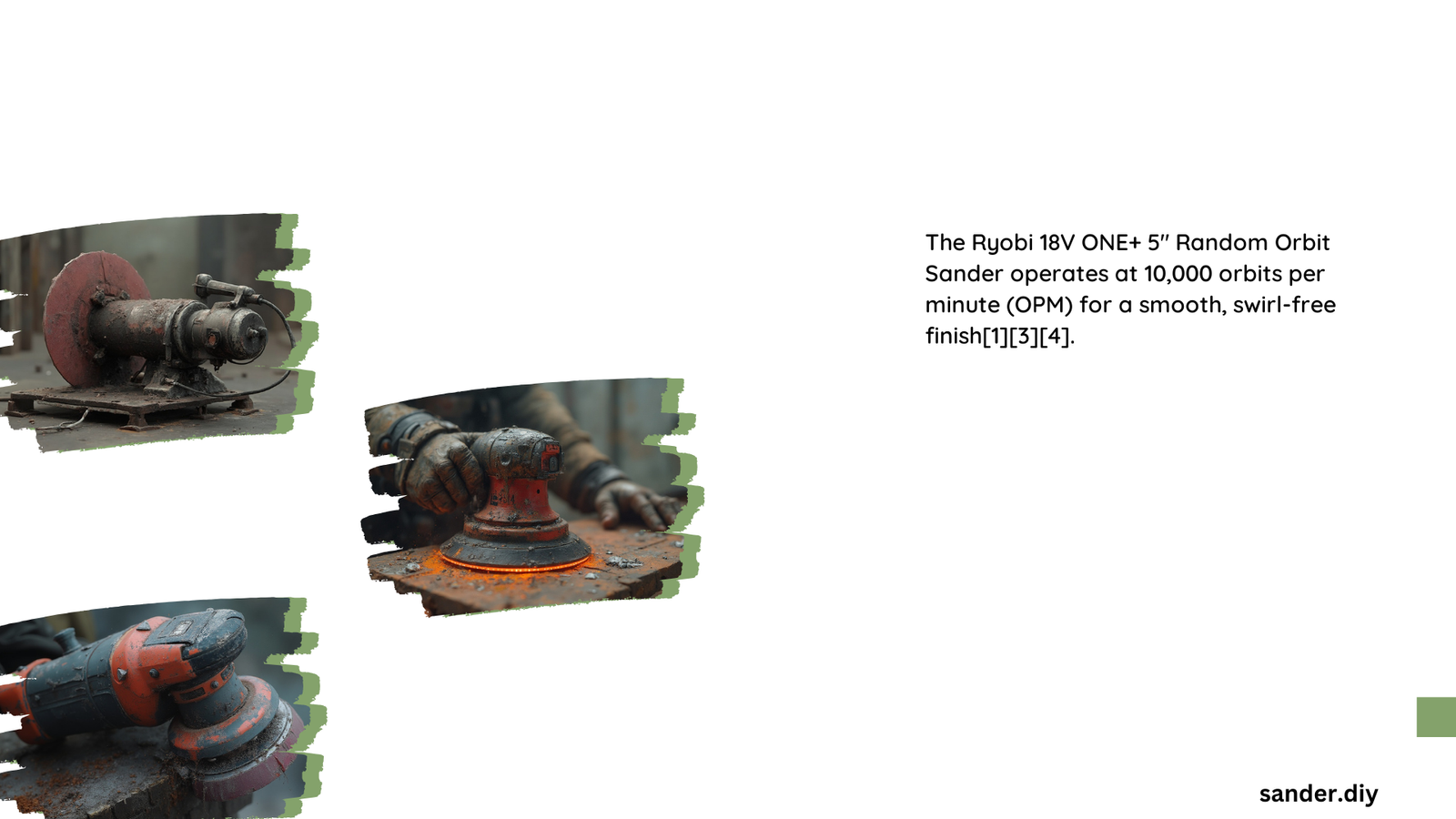Ryobi orbital sanders represent precision power tools designed for woodworking professionals and DIY enthusiasts. These sanders deliver consistent performance through specialized rotational speeds, ranging from 10,000 to 12,500 orbits per minute (OPM), enabling users to tackle diverse sanding tasks with remarkable efficiency and surface finish quality.
What Are the Specific RPM Specifications for Ryobi Orbital Sanders?
Corded Model Performance
The Ryobi 120V AC 5″ Random Orbit Sander (RS290G) offers:
– Fixed speed of 12,500 OPM
– No variable speed settings
– Ideal for general woodworking applications
Cordless Model Performance
The Ryobi 18V ONE+ 5″ Random Orbit Sander (PCL406) provides:
– Consistent speed of 10,000 OPM
– Single-speed operation
– Balanced performance for multiple sanding scenarios
How Do Different RPM Levels Impact Sanding Performance?

Speed and Material Interaction
Different RPM levels significantly influence sanding outcomes:
| RPM Range | Material Compatibility | Finish Quality |
|---|---|---|
| 10,000 OPM | Soft woods, delicate surfaces | Smooth, minimal material removal |
| 12,500 OPM | Hardwoods, rough surfaces | Aggressive material removal |
Factors Affecting Sanding Efficiency
Key considerations for optimal sanding include:
– Sandpaper grit selection
– Material hardness
– Desired surface finish
– Workpiece complexity
What Techniques Maximize Ryobi Orbital Sander Performance?
Recommended Practices
- Match sandpaper grit to project requirements
- Apply consistent, moderate pressure
- Move sander in grain direction
- Use dust collection system
- Wear appropriate safety equipment
Common Challenges and Solutions
Speed Limitations
- Challenge: Fixed RPM settings
- Solution: Select appropriate sandpaper grit
- Technique: Adjust sanding duration and pressure
Dust Management
- Use genuine Ryobi dust collection bags
- Ensure proper attachment
- Clean filters regularly
- Work in well-ventilated areas
Why Understanding RPM Matters for Woodworkers?
Performance Implications
- Consistent surface preparation
- Reduced manual labor
- Improved project quality
- Enhanced tool longevity
Professional Insights
Experienced woodworkers recognize that RPM is not just a number but a critical performance parameter determining:
– Material removal rate
– Surface smoothness
– Tool control
– Finishing precision
Technical Specifications Breakdown
Comparative Analysis
- Corded Model: 12,500 OPM
- Higher energy input
- More aggressive sanding
-
Ideal for professional workshops
-
Cordless Model: 10,000 OPM
- Portable flexibility
- Balanced performance
- Suitable for home and job site use
Expert Recommendations
Maintenance Tips
- Regularly inspect sanding pad
- Replace worn components
- Store in dry, clean environment
- Follow manufacturer’s maintenance guidelines
Accessory Selection
Choose accessories compatible with specific Ryobi orbital sander models to ensure optimal performance and prevent potential damage.
Conclusion
Understanding Ryobi orbital sander RPM empowers woodworkers to select the right tool, optimize performance, and achieve superior finishing results across diverse projects.
